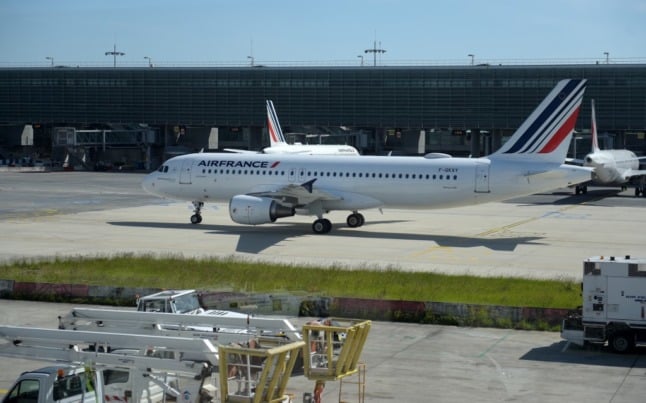France had previously said that it hoped to allow entry to vaccinated travellers from non-EU countries to entry from June, if the the spread of Covid-19 was under control.
On Friday the government published details of the new protocol, which will come into force on Wednesday, June 9th.
The new rules divide all countries into red, orange or green zones and stipulate different rules for vaccinated and non-vaccinated travellers.
The United States along with Canada have been classified as orange based on level of Covid-19 spread, presence of variants and vaccination rates – but travellers are warned that ratings can change if the situation deteriorates.

The rules for travellers from orange countries are as follows:
Fully vaccinated – Before boarding travellers must present a negative Covid test (antigen or PCR) taken within the previous 72 hours, plus have proof of their vaccinated status.
Not vaccinated – Travel is allowed for certain “essential” categories of travellers, people who qualify must present a negative Covid test (antigen or PCR) taken within the previous 72 hours and quarantine for seven days on arrival before taking a second test.
To qualify as fully vaccinated, travellers must:
- Have received a vaccine that is approved by the European Medicines Agency – Pfizer, Moderna, AstraZeneca or Johnson & Johnson (known as Janssen in France)
- Be at least two weeks after the second injection for double-dose vaccines or for people who had previously had Covid and therefore only received a single dose
- Be at least four weeks after the injection for people who had the Johnson & Johnson vaccine
The Local has requested clarification on how travellers from the US or Canada will be able to prove to border police they have been fully vaccinated.
The rules on essential travel are strict and do not include tourism, family visits or visits to second-homes.
The following groups are allowed to enter France under the essential travel rules;
- French citizens and their spouse or partner and children
- EU citizens who have their permanent residence in France, or in another EU country and are transiting through France in order to return to their home. Spouses, partners and children of EU nationals living in France or another EU country are also covered by this
- Non-EU nationals who have their permanent residence in France or in another EU country and are transiting through France in order to return to their home. Proof of residency such as a residency card or visa will be required.
- British nationals who are covered by the Withdrawal Agreement (ie who were permanent residents in France or another EU country before December 31st, 2020)
- Non-EU nationals who benefit from a family reunification visa or are covered by refugee status
- Health professionals engaged in the battle against Covid, or travelling to do research or internships connected to the pandemic. Spouses, partners and children are also covered by this
- Non-EU nationals who have a passeport talent visa, plus their spouse, partner and children
- Students enrolled at a higher education establishment in France
- Employees in the road, sea, or air transport industries travelling to France or through France for work-related purposes, including hauliers
- Non-EU nationals involved in diplomatic or consular work
- Traveller spending less than 24 hours in France in transit to another country
- Employees of the Channel Tunnel or police or customs staff engaged on work at the border
Unlike under previous travel restrictions there are no exemptions for travel for compassionate reasons such as visiting seriously ill family members.



 Please whitelist us to continue reading.
Please whitelist us to continue reading.
I can’t find any clarification regarding minors. I am fully vaccinated, but my 12-year-old daughter is not. Will she be allowed in from the US even though she does not qualify for any of the essential reasons?
I have the same issue – 7 & 9 Year old children with fully vaccinated parents traveling from the US. The EU guidance suggested children 11 and under would need to present a negative test I believe, but I can’t locate evidence that the new French rules will mirror this approach?
I got a reply from the French Ministry for Europe and Foreign Affairs on Twitter (@francediplo_EN) that children traveling with their vaccinated parents are treated as vaccinated (even if the children are not), so whatever the parents are is what applies to the children. Someone else replied that she got an email from the consulate in Miami stating that minors go off of their parents’ status. So only tests for children to enter. I think we’re good to go! Hooray!!
Merci! That is good news.